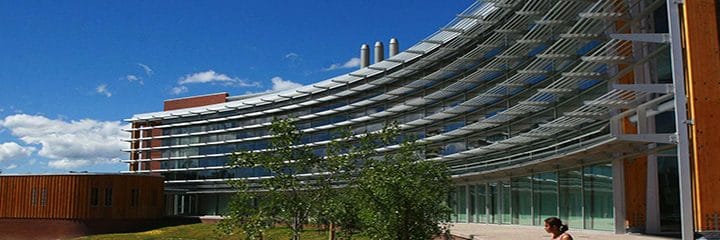Climate Science & Solutions
- CSS Faculty & Staff
- Directory of current students
- CSS Advisory Board
- CSS Alumni
- CSS 4+1 Program
- CSS Admissions
- CSS FAQ
Student resources

 Professional Science Master's
Professional Science Master's 
Master’s in Climate Science & Solutions
The Climate Science & Solutions (CSS) Professional Science Master’s program combines a foundation of climate science and sustainable systems studies with professional training and organizational skills to help graduates succeed in the growing climate industry. Meet our Faculty & Staff or check out program highlights below.
-
Program highlights Tab Open
-
Our students Tab Closed
-
Learning objectives Tab Closed
-
Financing your education Tab Closed
Program highlights Accordion Open
- Professional Science Master’s: the 18-month, non-thesis based program is designed to help students directly apply science and policy skills in organizational settings.
- Students meet with faculty, industry professionals, and the CSS Program Coordinator to refine their professional interests and develop a portfolio of their applied projects.
- An advisory board of professionals ensures the program is meeting the current needs of the growing climate industry and provides direct assistance to students in growing their professional network, securing internships and advancing in their career.
- Visit our admissions page to learn more
Our students Accordion Closed

Excellent candidates for this Professional Science Master’s program have undergraduate backgrounds in:
- Engineering
- Science
- Environmental Studies
- Business
- Other academic areas that are committed to learning and applying the science of climate change
Learning objectives Accordion Closed
- Understand and explain the physical nature of global climate change
- Apply national and international standards to conduct professional greenhouse gas inventories
- Evaluate the social and economic externalities of climate change
- Describe the ethical, scientific, and policy strengths and weaknesses of current and proposed mitigation and adaptation strategies
- Identify, analyze, synthesize, and communicate scientific information and uncertainties for public and professional audiences
- Participate in a professional internship and develop the professional skills needed to establish your career in the growing climate industry
Degree requirements
This is a 36-credit program that includes five core courses (18-credits) focused on the following:
- Science of climate change
- The economics of natural resources and climate change
- The science and management of greenhouse gases
- The principles of sustainable systems
- Environmental discourse around climate change mitigation and adaptation
You will select electives to tailor your degree toward biological, engineering, social, policy, or economic approaches to climate solutions. In addition to 12-credits of electives, students participate in a 6-credit career development program, including a professional summer internship. Both the electives and the internship allow students to personalize their degree. For more details about specific courses and requirements, see the program of study and the academic catalog.
Financing your education Accordion Closed
Our Office of Student Financial Aid can help you estimate the cost to attend graduate school. You can also learn more about sources of funding on our Student Resources page.

NAU President’s Climate Commitment
NAU is committed to carbon neutrality by 2030. Located in Arizona, we face increased climate vulnerabilities such as water scarcity, extreme heat waves, wildfires, and public health issues. As an institutional leader, NAU is responding to this global issue with a focus on adaptability, innovation, and stewardship. Recognizing the urgent need to rapidly adopt renewable energy solutions and sustainable operations responding to the deep commitment of the larger NAU community to climate action and sustainability, President Cruz-Rivera has committed to:
“Heightened investments of the university community’s time, talents, effort, and resources to securing the conditions needed to achieve carbon neutrality by 2030”.
NAU is a leader in higher education for sustainability and a founding signee of the American College & University Presidents’ Climate Commitment (ACUPCC) and the Second Nature Carbon Pledge in 2007. NAU is proud of the City of Flagstaff Climate Emergency Declaration and its leadership within our community. We are focused on community engagement to ensure that we create a plan that reflects the current needs of our greater campus community.